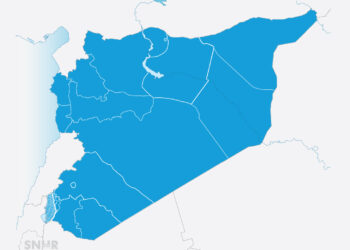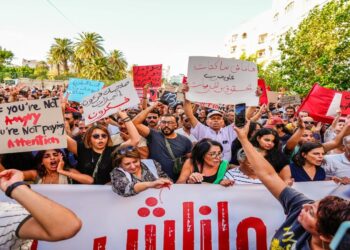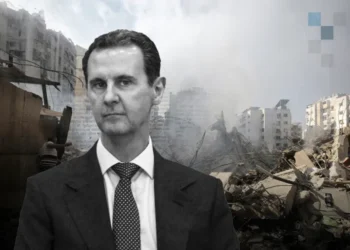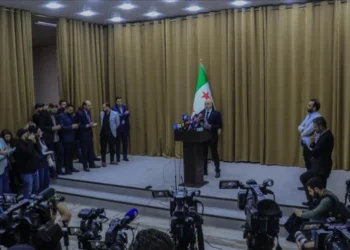Fadel Abdulghany
For fourteen years, we have worked in secrecy and exile. Our team members risked their lives daily, working under bombardment and surveillance, and under the constant threat of arrest. Three of our colleagues remain forcibly disappeared to this day, their absence a painful reminder of the price they paid for the truth during the former regime.
Others were killed under torture, targeted and injured in airstrikes, or left their work as a result of the accumulated psychological pressure of witnessing unspeakable atrocities.
Today, as I stand in our office in Damascus, I remember those who continued to document violations even under a barrage of barrel bombs, who smuggled testimonies, photos, and videos across security checkpoints, and who created databases while living as refugees subjected to the harshest forms of racism and threats in their most basic identification documents. Their sacrifices are what brought us to this defining moment.
Engineering the Truth
Over the past 14 years, we have built a systematic documentation system that transforms individual suffering into legal evidence. Our databases contain information on approximately 234,576 documented civilian deaths, 163,718 cases of arrest and enforced disappearance, 45,342 victims of torture, and more than 16,000 officials implicated in violations.
We have also documented 81,954 barrel bomb attacks, 222 chemical weapons attacks, 919 attacks on medical facilities, and 1,477 attacks on places of worship. Each of these numbers is a testament to a life destroyed, a family torn apart, and a community ripped apart. Behind every data point is a name, a story, and a demand for justice, which we have steadfastly upheld in the face of repeated attempts to erase them.
Our methodology has evolved from simple daily reports in 2011 to databases that meet international legal standards.
The weight of testimony
The psychological burden of this work cannot be measured. Team members suffered from mental exhaustion as a result of daily exposure to images of victims and detainees and listening continuously to the testimonies of torture survivors.
Nevertheless, we continued our work because we understood a fundamental truth: in the absence of immediate justice, documentation becomes an act of resistance.
Every name recorded, every testimony preserved, and every violation documented is a denial of tyranny’s right to have the last word.
The former regime recognized this truth and launched cyberattacks on our servers, established a fake organization bearing our name to mislead public opinion, and launched organized disinformation campaigns. Other parties to the conflict, foremost among them Russia, engaged in similar actions to varying degrees. Nevertheless, the truth, carefully documented and meticulously preserved, remains steadfast in the face of all attempts at suppression.
Today, our data is relied upon by the UN High Commissioner for Human Rights, the International Commission of Inquiry, the International Independent Impartial Mechanism (IIIM), and European courts hearing numerous cases.
Transitional Justice: From Theory to Practice
With our presence firmly established in Damascus, Syria today stands at a critical crossroads.
The fall of the former regime in December 2024 presented an irreplaceable historical opportunity, and our vision for transitional justice is based on five fundamental pillars:
First, accountability without compromise: The first and second tiers of the approximately 16,200 officials documented in our databases must be held accountable.
Lasting peace cannot be established in the shadow of impunity, and we are prepared to present our evidence to any legitimate judicial process, whether local or international.
Second, revealing the fate of the missing: The issue of forcibly disappeared persons represents the most pressing humanitarian crisis in Syria.
Our recent memorandum with the International Commission on Missing Persons is a first step on this long road.
Third, institutional reform that goes beyond cosmetic change: The security and military apparatus must be restructured under clear civilian oversight and within a legal framework that prevents the recurrence of abuses.
Fourth, constitutional guarantees for victims’ rights: The new Syrian constitution should recognize victims and their rights to know the truth, obtain compensation, and establish the principles of transitional justice.
This is not about revenge, but about preventing the tragedy from recurring.
Fifth, preserving and honoring memory: Systematic attempts to cover up crimes, whether through misinformation or the destruction of evidence, must be countered by preserving the truth with equal rigor. Our archives are a key tool for protecting Syria’s historical memory.
Looking ahead
Our presence in Damascus allows us to work directly with victims and survivors who, for 14 years, were only allowed to whisper their testimonies through encrypted channels.
To the survivors who trusted us when revealing the truth meant risking their lives: your courage made this moment possible.
To the families who sent us photos of their loved ones who died under bombardment or torture, while grief still flows through their veins: your trust built our archive.
To the activists who transported evidence from areas under siege: your dedication made documentation possible.
And to my colleagues: your efforts are the true foundation of every success.
The road ahead is still long
Building a new Syria requires time and effort from all its people, and for the first time in fourteen years, we are walking this road, not as exiles, but as Syrians in their homeland.






